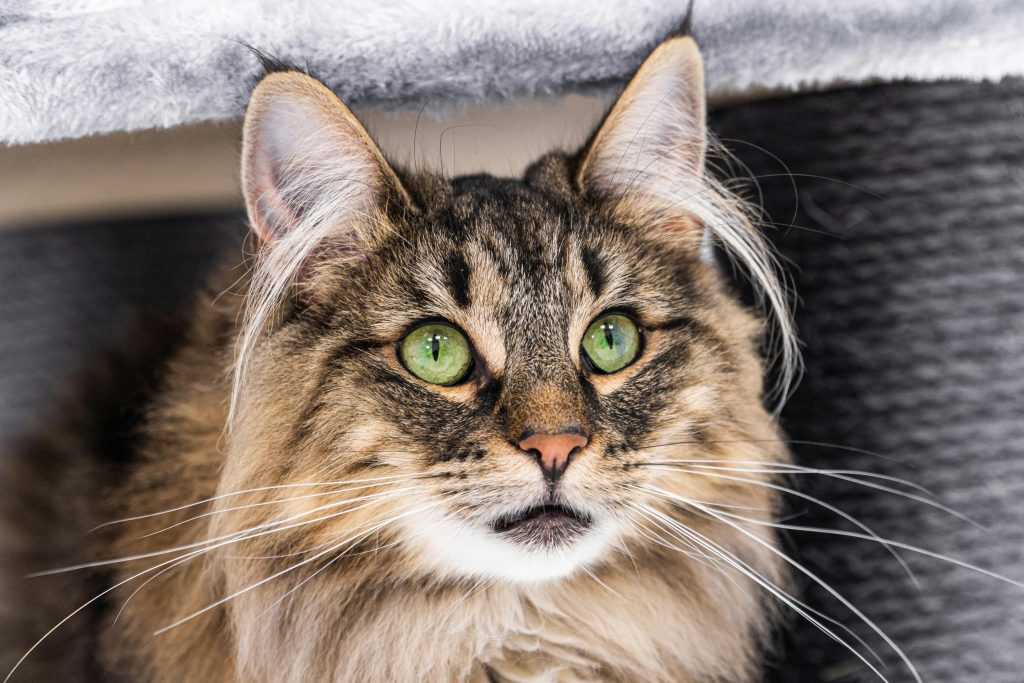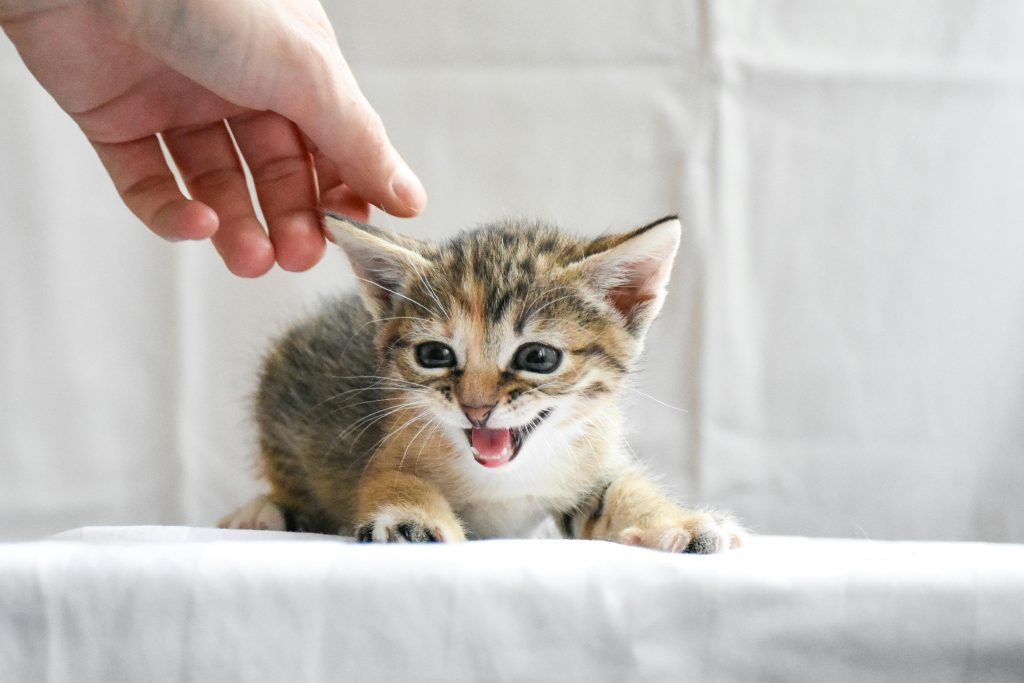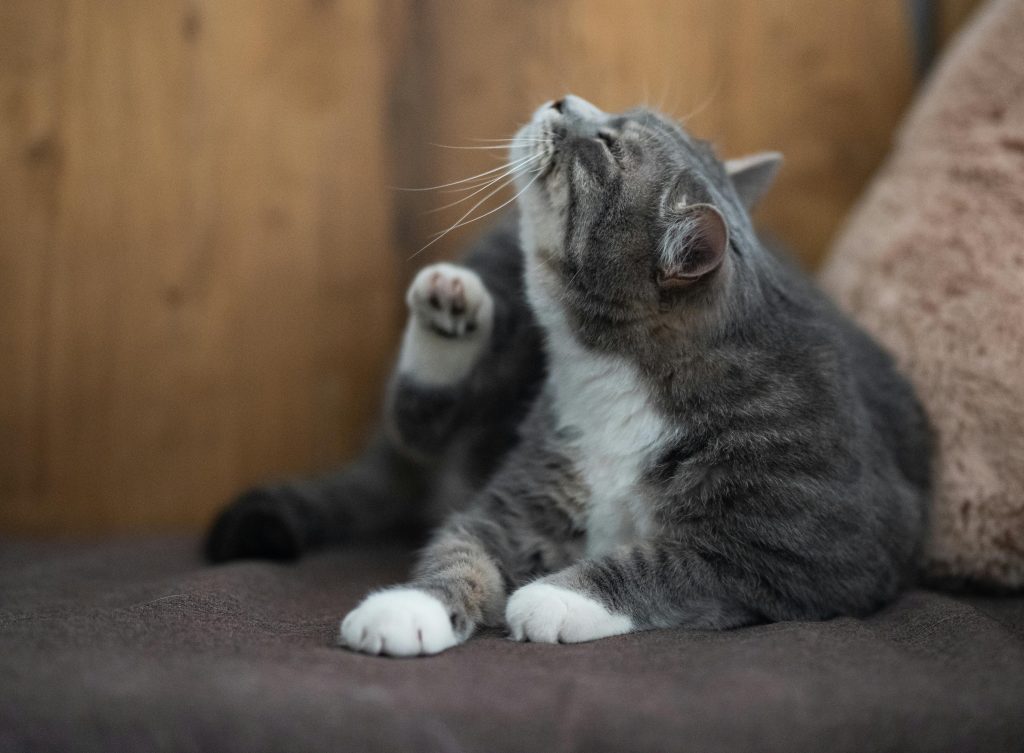Table of Contents
Have you ever questioned whether your beloved feline is giving you the cold shoulder as they communicate their feelings in ways that are often mysterious to us humans?
By recognizing the signs that your cat may be upset, you can navigate the confusion and take steps to mend any invisible rift in your relationship, so let’s delve into six clues that could reveal your kitty’s true feelings and how to remedy the situation.
1. The Silent Treatment

When your once-playful partner-in-crime suddenly transforms into a ghost that barely acknowledges your presence, it can be both alarming and confusing, especially if your usually sociable furball now seems to actively avoid you.
This shift in behavior often signals their unhappiness, as cats thrive on routine, and any sudden changes—such as rearranging furniture or introducing a new pet can easily cause them to retreat into their own world.
- What to Do: Give your cat some space and time. After a few hours, try coaxing them with their favorite treats or a gentle call to ease them back into interaction. Sometimes, a little patience goes a long way.
2. Aggressive Grooming or Excessive Scratching
Cats are fastidious groomers, but if you notice your kitty grooming themselves excessively or scratching furniture more than usual, they might be feeling stressed or angry.
This behavior can be their way of coping with anxiety or frustration, signaling that something’s off.
- What to Do: Observe what might be triggering their stress. Is there a new scent in the house? Or perhaps they’re not getting enough playtime? Creating a calm environment with familiar scents can help them feel more secure.
3. Changed Body Language

Your cat’s body language serves as a vital indicator of their emotional state; a relaxed feline will typically have their ears pointed forward, their tail held high, and may even choose to flop down contentedly beside you.
Conversely, if you notice their ears flattening, their tail twitching, or their body crouching low, these are clear signals that they are feeling upset.
- What to Do: Take a step back and assess the situation. If your cat is disturbed—a loud noise, a stranger, or even a change in the weather—they may need your support. Softly speaking to them or providing a safe space can help.
4. Reduced Playfulness
Your cat’s body language serves as a vital indicator of their emotional state; a relaxed feline will typically have their ears pointed forward, their tail held high, and may even choose to flop down contentedly beside you.
Conversely, if you notice their ears flattening, their tail twitching, or their body crouching low, these are clear signals that they are feeling upset or agitated.
- What to Do: Try to engage them with new toys or games. Sometimes, a change in routine can reignite their playful spirit. If this behavior persists, consider a vet check-up to rule out any health concerns.
5. Increased Meowing or Hissing

Has your once-vibrant kitty turned into a couch potato, ignoring their favorite toys and showing little interest in playtime?
This sudden lack of engagement could indicate that they’re feeling down or upset about something, or it might even signal that they’re not feeling well.
- What to Do: Take their vocal cues seriously. They may be trying to tell you something important, whether it’s a demand for attention or a signal that something’s bothering them. Spend time with your cat, and if the hissing continues, investigate what might be causing their discomfort.
6. Litter Box Issues
If your cat begins to avoid their litter box or has unexpected accidents around the house, it serves as a significant warning sign that something may be amiss, especially since cats are generally known for their cleanliness and routine.
Such a sudden change in bathroom habits could be indicative of stress, underlying health issues, or even an aversion to the type of litter you’re using, all of which warrant your immediate attention.
- What to Do: Ensure the litter box is clean and placed in a quiet, accessible area. If they refuse to use it, consult a vet to rule out any medical conditions. Addressing litter box issues is crucial to keeping your relationship on track.

Final Thoughts: Understanding Your Feline Friend
While cats can be mysterious animals, their behaviors offer valuable insights into their emotions, allowing you to better understand and nurture your bond with them.
So, the next time you question whether your feline friend is upset, keep these clues in mind and take the necessary steps to make them happy because a content cat contributes to a joyful home environment.

Hi, I’m Zoey, a devoted mom to two charming Siamese cats. My passion lies in assisting fellow pet owners in providing optimal care for their cats. On CatsEuphoria, I share practical tips and relatable stories, inviting you to join me in appreciating the authentic bond between humans and our beloved feline companions.




